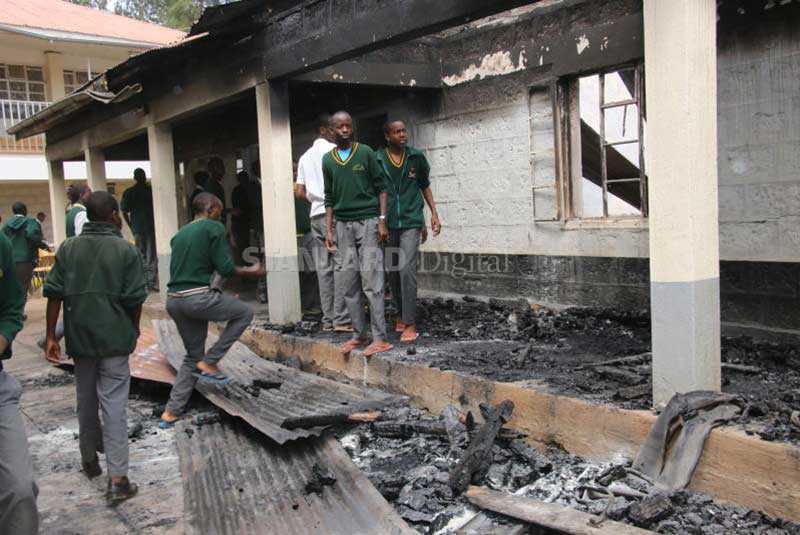×
The Standard e-Paper
Smart Minds Choose Us

Abdication of parental responsibilities and drug abuse are fuelling unrest in secondary schools.
A study by the United States International University-Africa (USIU) says the Ministry of Education’s enactment of rules without consulting all stakeholders, lack of communication and schools operating without a code of conduct for students are also a major contributing factor to chaos in schools.